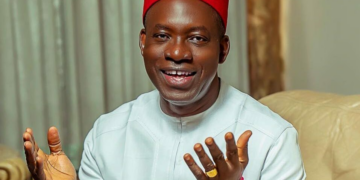The Executive Secretary of Tertiary Education Trust Fund cv (TETFUND), Sonny Echono, has called on all public universities to device a new model of sustainable funding to guarantee self-sufficiency.
He noted that over-dependence on government for funding was affecting public universities in the country, insisting that adopting a new model of sustainable funding would help them fulfill their mandate.
Echono made the call, at the weekend, in Nsukka, Enugu State, where he delivered the University of Nigeria, Nsukka (UNN) 51st Convocation Lecture entitled; “University Autonomy and the Challenge of Sustainable Education Funding in Nigeria.”
According to him, ‘’The future of university education in Nigeria lies in sustainable funding,’’ which he said had heightened the need to explore innovative and sustainable funding models for university education in the country.
“Public universities suffer from over-dependence on the government. They are, therefore, susceptible to revenue shortfall, budgetary constraints, and other competing needs of the government.
“A regime of declining revenue and rising corruption manifests in deteriorating infrastructure and poor remuneration for lecturers.
“The incessant industrial actions over the last few years by staff unions in our universities, bordering on challenges of funding, has heightened the need to explore innovative, sustainable funding which implies rethinking stakeholders’ involvement in education financing to secure a qualitative and functional tertiary education system, which is an essential tool for sustainable development”.
Echono urged universities to go into the core business of education delivery, research, and services such as consultancy, clinical medical services, agribusiness, technology parks, and innovation hubs that would be self-financing and generate surplus revenue.
He said: “Our universities should be encouraged and supported to seek alternative and additional revenue sources by developing a range of pathways and mechanisms, including ventures related to their services that would be self-financing to generate surplus to the university and similar initiatives.”
He also urged public universities to make conscious efforts to strengthen their Research and Development activities and ensure effective linkage and collaboration with industry towards the commercialisation of their research output to generate revenue and sustain the system.
The Vice-Chancellor of UNN, Prof Charles Igwe, said that the convocation was for the purpose of conferring the Bachelor’s degree and Diploma of the university on deserving graduates of the 2020/2021 class.
He disclosed that of the 12,962 graduating students, 11,444 would receive first degrees with 67 receiving diplomas, adding that 1,451 would receive postgraduate degrees for the 2022/2023 academic session.
According to him, 288 among the graduates earned First Class (Honours) degrees, while 4,853 graduands would be conferred with the Second Class Honours (Upper Division) degrees of the University, with 5,077 graduands being conferred with the Second Class (Lower Division) degrees of the University.
The VC urged the graduates to remain true ambassadors of the university and reminded them that their graduation from the institution should not imply the end of their relationship with UNN, their alma mater.
The Chancellor of UNN, Oba Adeyeye Ogunwusi, the Ooni of Ife, while congratulating the graduates and their families for the great achievement of earning the degree of Nigeria’s number one university, expressed happiness that the University of Nigeria had remained a good breeding ground for good quality and dependable workforce needed to develop the country and the world in general.





